Hospital medical directors fulfill a dynamic and vital role. They act as liaisons and provide a link between the front-line team and C-suite – coordinating optimal patient care, interpreting challenges for the C-suite to facilitate understanding, and advising the C-suite and leading clinical improvement. Medical directors also influence all clinical and nonclinical departmental positions to impact change.
Given their critical leadership position, the C-suite expects medical directors to adroitly display certain skill sets and character traits.
4 Important Skill Sets for Medical Directors
Although a medical director’s job requires wide-ranging skills, four categories stand out as being most important for medical directors: communication, emotional intelligence, clinical expertise, and administrative ability.
1. Effective Communicators
Medical directors must be excellent communicators, including precisely delivering their objectives and setting expectations that resonate with their teams.
They should also know how to handle the delicate issues that arise from time to time. While no one likes to have difficult conversations, knowing how to handle conflict can positively impact staff performance and morale.
The book Crucial Conversations: Tools for Talking When Stakes Are High is a helpful resource for acquiring conflict management skills. It teaches how to avoid conflict and reach favorable outcomes.
2. Emotionally Intelligent
Emotional intelligence (EQ) is another essential skill to be an effective leader. Emotionally intelligent leaders achieve objectiveness through their self-awareness, resulting in more productive, motivated, and collaborative workplaces. Medical directors can also apply their EQ to meet goals and create a happier, healthier working environment.
While EQ is an innate trait, it can be taught. The book Emotional Intelligence by Daniel Goleman, a highly-regarded emotional intelligence expert, is a useful resource to gain acumen in this area.
3. Clinical Expertise
Although medical directors may not always be directly responsible for patient care, they oversee clinical and non-medical staff to ensure they meet the overall goals of their facility and that patients receive quality care.
It’s essential for leaders to be up-to-date on clinical best practices and have a wealth of knowledge to help their teams provide the best possible care.
4. Administrative Ability
Medical directors often juggle several duties simultaneously, so they must exhibit strong administrative skills to keep their staff organized and productive. That includes creating organizational systems and processes, planning individual and team calendars, keeping email and paperwork orderly, and maintaining a project schedule that everyone can access and easily understand.
Character Traits
Skills alone won’t get a medical director very far if not accompanied by good character. Maintaining ethical and moral principles is essential to gaining the trust of the clinical staff and C-suite. The integrity they exhibit in upholding the organization’s values and doing the right thing even when no one is looking is a quality to which medical directors should aspire.
To that end, medical directors must hold themselves and their staff accountable. They must respect everyone regardless of station, regard themselves as servants, not dictators, and intensely focus on clinical excellence and quality.
Related Resource: Leadership Advice for New Medical Directors
5 Ways to be a Relational Leader
The following checklist is an excellent place to learn essential leadership skills and the C-suite to use as a guide when choosing a medical director.
- Show up, be present, and maximize visibility. Medical directors must have a high degree of visibility with staff and administrators. Don’t hide in an office — be on the floor, present, and accountable.
- Influence, not dictate. Business consultant and motivation speaker Ken Blanchard said, “The key to successful leadership today is influence, not authority.” A true leader inspires others to accomplish a goal, not dictate how, when, where, and what to do.
- Be transparent, even if it’s uncomfortable. Clinicians are increasingly demanding greater transparency to better understand their working environment, and the goals they are expected to meet. Beating around the bush when there’s an issue may feel easier, but it’s likely significantly less helpful.
- Be respectful and humble, even under pressure. Respect and humility go a long way toward engendering staff and hospital leadership trust. Refrain from always saying what you think if there is a chance it will inhibit productivity and growth. The ability to remain calm under pressure is the true sign of a great leader.
- Learn to listen. Listening is more than just hearing. It means identifying fears, non-negotiables, and the “why” underlying a situation. Listening requires empathy and a desire to understand the other person’s point of view.
Know Your Role
Medical directors wear many hats, and they must be judicial in knowing which to put on at any given moment. That means knowing when to be an expert or a champion and when to be a friend or supervisor.
Learn to Speak the C-suite’s ‘Language’
To the C-suite, value equates to quality and cost, Therefore, speaking the C-suite’s “language” means knowing the hospital’s annual metrics and long-term goals, and using them to guide conversations around change. It also means learning the organizational budget cycle and being strategic about requests.
Invest Time in Improvement
Medical directors should make professional development a high priority. Take advantage of educational opportunities such as those offered by SCP Health, American Association for Physician Leadership, American College of Healthcare Executives, and other organizations. Also, ask for feedback from colleagues and use their guidance to help you improve.
Conclusion
An excellent medical director is an asset to any hospital. Great leaders help people reach their goals, and a medical director who exhibits the skills and traits listed here can help their facility establish a collaborative culture leading to a future defined by productivity, excellence, and quality patient care.
Interested in Becoming a Medical Director?
Browse our available clinical careers – we have openings in a wide range of specialties.





